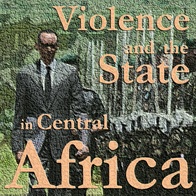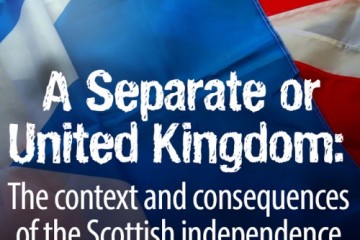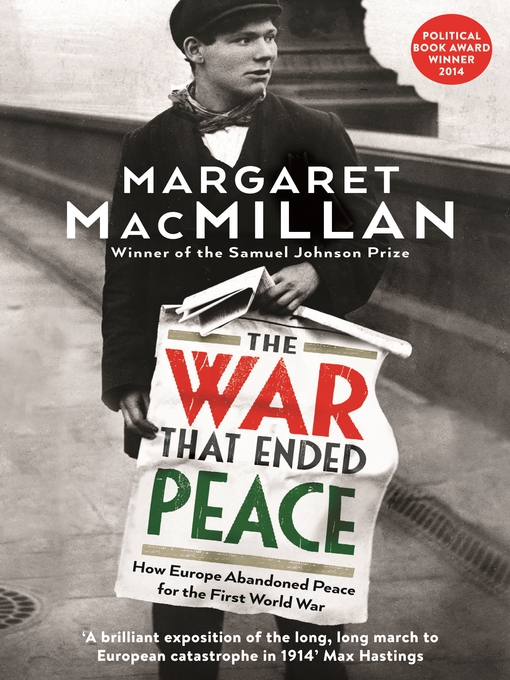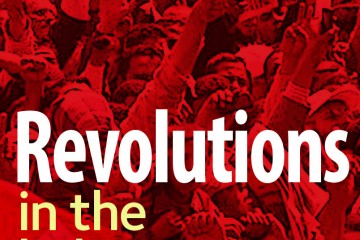
Violence and the State in Central Africa
This blog takes as its focus the complex and unusual dynamics of violence in Central Africa. Although sometimes unfairly written off as a region of intractable conflict, kleptocratic big men, and hopelessly poor levels of governance, many regional experts now argue that Central Africa is undergoing a period of profound transition. Are the ‘Illiberal Statebuilders’ of Paul Kagame and Yoweri Museveni heralds of a new period of robust and durable state formation? Or merely the newest generation of patrimonial caretakers for states in terminal decline? Is the defeat of the M23 mutiny in Eastern Congo the last rebellion, or just the latest? And how has their defeat reshaped the social and political map of the region? We wish to give …

A Separate or United Kingdom: The context and consequences of the independence referendum
This blog series analyses the issues surrounding Scotland’s impending referendum on independence. The series attempts to shed light on why the referendum is taking place, the context and substance of the debate, and the implications of either a yes or no vote. The prospect of splitting up the British state after more than three-hundred years of voluntary union represents one of the most dramatic developments in the history of the United Kingdom. The popular and scholarly debate has become increasingly sophisticated in recent months, but attention remains excessively directed to short-term economic concerns. A wider comparative frame is essential to understanding the referendum, which will have both international and domestic implications. The blog aims to draw from across the social …

Interview with Margaret MacMillan: The War That Ended Peace
Margaret Macmillan, Professor of International History at the University of Oxford and Warden of St Anthony’s College, discusses her new book ‘The War That Ended Peace’ with DPhil student Katharine Brooks. The book is a re-examination of the causes of World War One and seeks to answer the question of why the long peace preceding 1914 failed to hold. Katharine asks what Professor Macmillan felt she has been able to add to our understandings of World War One, what parallels can be drawn from 1914 to 2014 and why academia still fails to come to an agreement on the causes of this most important of world events.

Exit Strategies and State-Building
Richard Caplan’s new book, Exit Strategies and State Building, fills a noticeable void in the otherwise rapidly expanding literature on international state-building. Despite the volume of scholarly attention dedicated to issues of peace- and state-building of recent decades, relatively little consideration has hitherto been given to questions regarding the “end game” of post-conflict state-building operations. This book seeks to address that gap and, therein, examine one of the most contentious issues for any state-building operation; the decision of when and how to leave.
Exit Strategies and State Building comprises a collection of chapters written by expert academics in the field and high-level practitioners with extensive experience on the ground during these missions. It is therefore both a well-informed and rounded contribution to the literature and essential reading both for scholars of post-conflict state-building and policymakers alike.

Democratic wealth: Could republican ideas provide the framework for a new economy?
Call yourself a ‘Republican’ today and people will either think you are a member of the US political party or want to guillotine the Queen. Yet a resurgence of interest in republicanism within academic circles is reclaiming the tradition, while the post-crash political landscape has brought to the fore demands for citizen participation and an interest in sharing control of the economy that can be read as republican in spirit.
An emerging contemporary republicanism within academic circles could provide a framework for building a citizen-led economy. But is there the political will to begin developing this kind of agenda?
In ‘A Discourse on Political Economy’, Jean-Jacques Rousseau gave his take on how a government should tackle inequality: ‘prevent extreme inequalities of fortunes; not by taking wealth from its possessors, but by depriving all men of means to accumulate it; not by building hospitals for the poor, but by securing the citizens from becoming poor’. This is a pretty good definition of today’s buzzword ‘pre-distribution’. Rousseau was a republican who applied these principles to his thinking on the economy, and it is this tradition of economic republicanism that is now being re-examined within academia. Since the first colloquium on the subject was held in Paris in 2007, thinkers across Europe and the US have been furthering the application of republican thinking to the market-driven developed world. Spain, where republican theory was explicitly used as a guide by the Zapatero government in 2004-2011, has provided practical insight in this field, while in the Republic of Ireland, Fintan O’Toole has argued for radical reform to implement genuine republicanism. We might expect American academics such as Michael Sandel, Alex Gourevitch and Thad Williamson, but the renewed interest in academic circles is not limited to republics. In Britain, the work of Phillip Pettit and Quentin Skinner is being read in a new light, towards developing a republicanism that can provide an alternative to market domination.

The Future of the Union: Stick or twist?
I want to consider the constitutional implications for the United Kingdom following September’s referendum on Scottish Independence.
If Scotland votes ‘No’
The constitutional consequences are easier to see in the case of a `No’ vote in September. Scotland is then almost certain to be offered more devolution, since all three major UK parties have promised further devolution of taxation powers. That, however, could further unbalance its position in a United Kingdom based on asymmetrical devolution. It is possible that the English Question would be resurrected, and that the Union would come under threat, not from Scotland but from England. England of course is by far the largest and most populous part of the United Kingdom, but the only part of the United Kingdom without a Parliament or assembly of her own. It is therefore the anomaly in the devolution settlement. But her reliability has perhaps been taken for granted, and English nationalism has not, until recently been a political force of any moment. Part of the reason for this no doubt is that, with a characteristic lack of logic, many in England have failed to recognise the distinction between being English and being British, treating the two as interchangeable. This may now be changing as a result of devolution and of euroscepticism, stronger in England than in other parts of the country. Perhaps UKIP is best understood as an English nationalist party, the English equivalent to the SNP. It favours an English parliament.

Bahrain beyond 2011: an economy on the upswing?
The decision taken by France’s Credit Agricole and Japan’s Tokyo-Mitsubishi bank to leave Bahrain following the unrest in 2011 sparked widespread fears of a mass exodus of financial institutions and led to a slump in investor confidence, casting a shadow of doubt over the performance of Bahrain’s economy. However, three years later, these initial fears seem rather misplaced. Despite a drop in investor confidence, Bahrain’s financial sector has remained intact, and economic growth has rebounded to pre-2011 levels. In the 1980s, in the wake of the Lebanese Civil War, Bahrain established itself as a regional financial center. In recent years, Bahrain has faced intense competition from Dubai and increasingly Qatar, but it has proven resilient due to its solid regulatory …

Evaluating Mutuals and Employee-Owned Businesses: Which values are relevant?
Across the political spectrum there is a growing interest in mutuals and employee-owned businesses (or MEOBs).[i] At the same time, the crisis in the Co-op group has thrown open the question of what the underlying values and objectives of co-operative enterprise are or ought to be (see also Hunt 2014 and Bastani, Benjamin and Coppola 2014). What constitutes good or bad performance for an enterprise that is a mutual or employee-owned?
In much conventional economic discourse we approach enterprises primarily in terms of one measure: profitability. An enterprise performs well when, and to the extent that, it is profitable. Given certain assumptions, this means it is performing efficiently. But is this really all there is to evaluating how well an enterprise performs?









